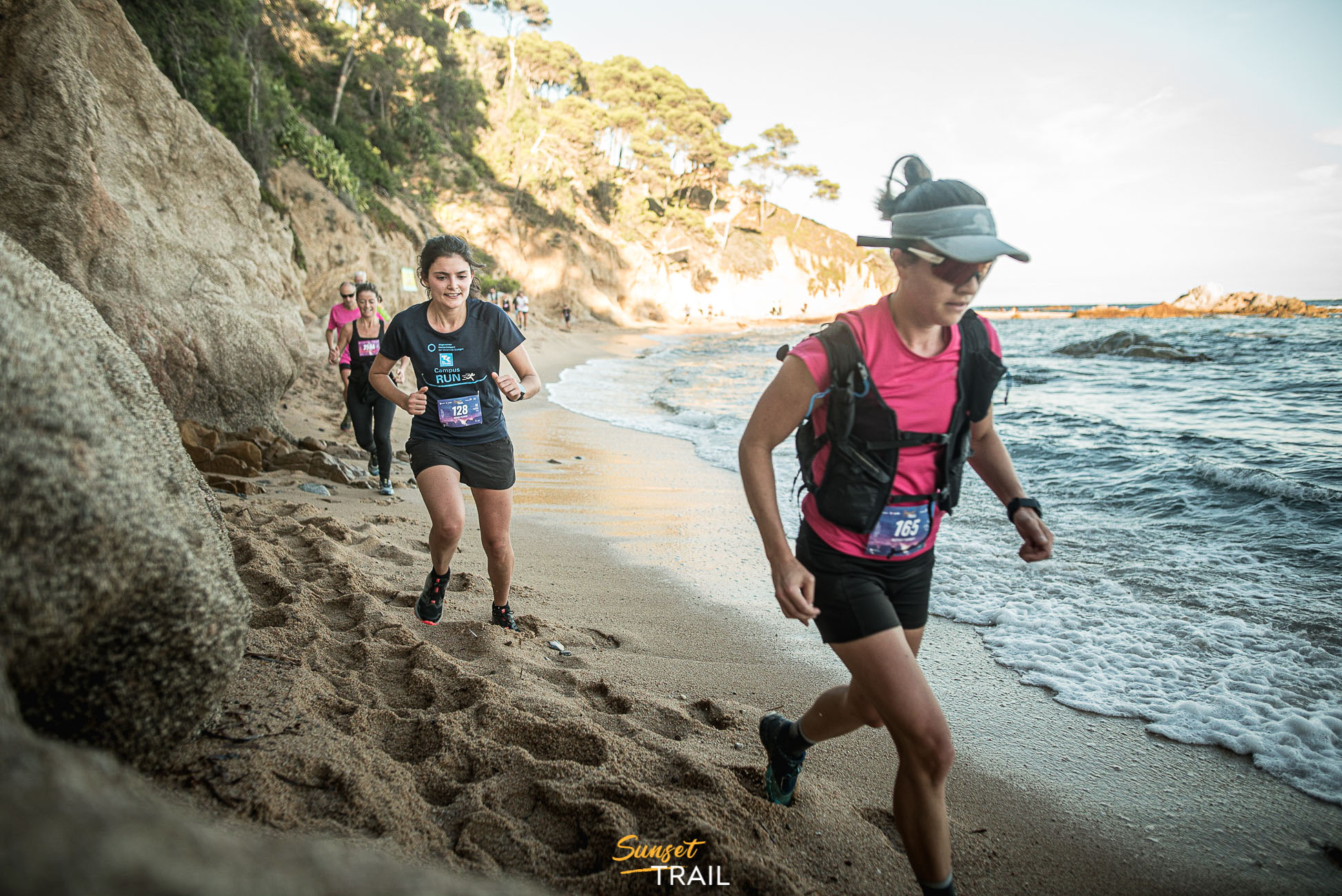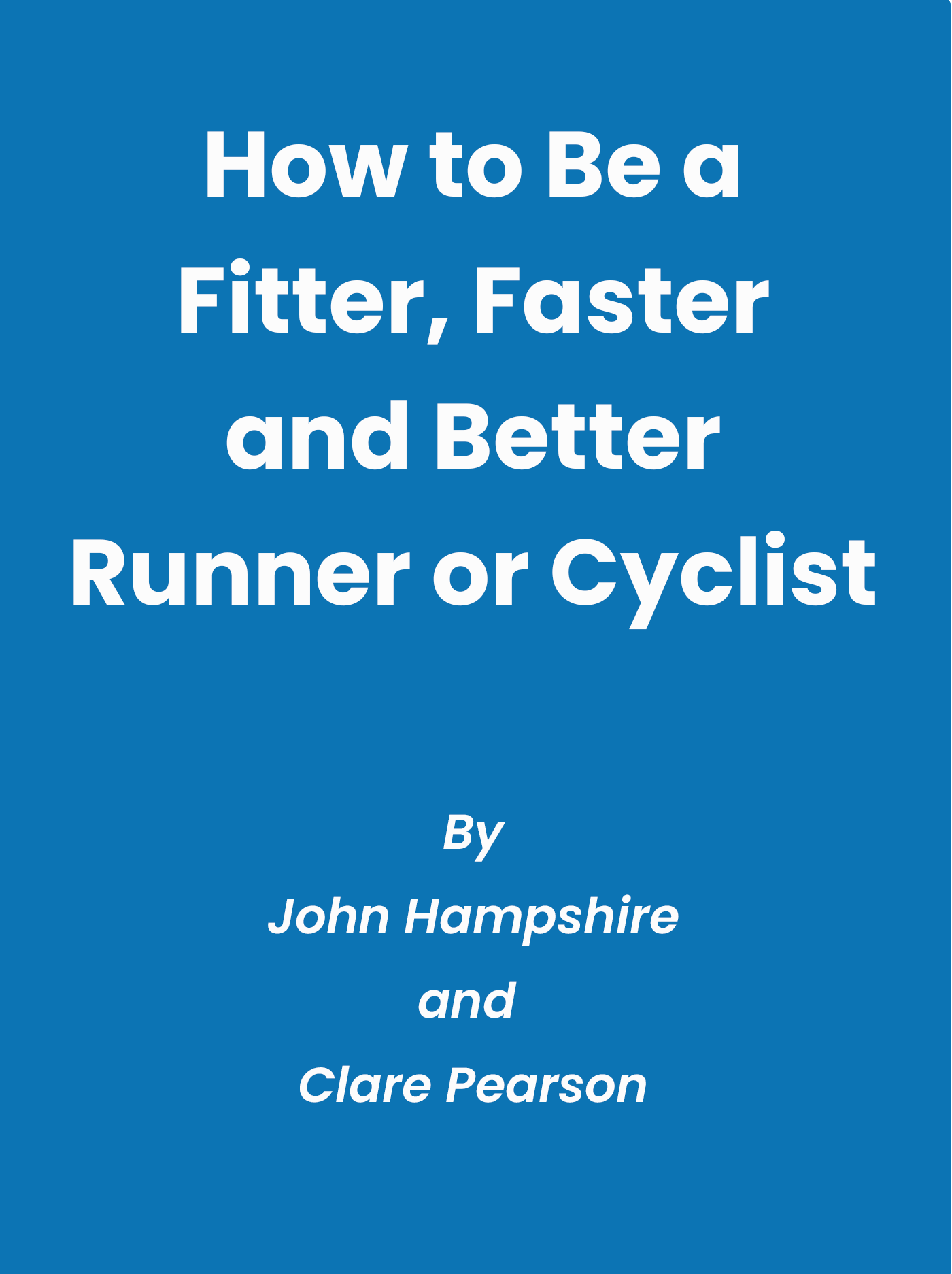Should I race if I’m on my period?

I’m sitting here thinking about the races I have run over the years. Some have been good and some have been bad, sometimes I’ve been on my period mostly I haven’t, by luck rather than design. So does being on my period mean that my athletic performance is going to be so impaired there’s just no point getting to the start line? Over the last few years there has been a lot more openness about this topic, so I wanted to find a definitive answer to this question.
So should I race if I’m on my period?
Well, the evidence suggests that it is possible to run at your very best when on your period. In 2002 Paula Radcliffe broke the women’s world record at the Chicago Marathon whilst suffering period cramps in the last third of the race. Similarly, Uta Pippig won the Boston Marathon in 1996 whilst on her period. My own best race of last year’s season fell on day two of my cycle and despite feeling tired in the week leading up to the big day I went on to win the race. The evidence suggests that period or not, having done your training it is well worth getting on the start line and you could run your best race yet.
However, this is not to say that our bodies are completely unaffected by the different hormones levels produced during different phases of the cycle. In fact research suggests that women can excel in different aspects of training during different phases of the cycle. Learning about these can help us to train smarter and get the most out of each training session, as well as helping us think about when we are race ready.
How does the monthly cycle effect athletic performance?

Research is limited, although improving all the time, and responses are very personal so it is important to do your own research and find out what works for you. Here are some guidelines that will get you started.
As you can see from the chart above, week one (the week of your period give or take a day or two depending on your individual cycle) is when all your hormone levels are at their lowest. What does this mean? Well it’s probably easier to think about what it doesn’t mean.
- From day 7 to 14 (assuming a 28 day cycle) oestrogen levels are climbing, reaching their highest point at ovulation around day 14. During this time the body naturally begins to favour fat as a source of energy (think slow steady training runs and long steady runs) so you may have plenty of endurance but not much speed.
- From day 14 to 28, also known as the luteal phase, the high levels of oestrogen and progesterone increase the body’s tendency to break down protein for energy. Your blood plasma level drops which means that the body sweats less readily, leaving you less able to regulate your body temperature; this could make running in the heat more uncomfortable.
- Your plasma level drops as the liquid is redistributed to other parts of your body, causing you to feel bloated and shown in an increase in weight. Both the increase in weight and the bloated feeling can leave you sluggish.
- Lower blood plasma means thicker blood concentration and slower blood flow between muscles causing a greater build up of lactic acid and slower recovery times.
Simply put, during the second half of your cycle (after ovulation) your body is preparing to make a baby; it’s priority is not running and this can make training hard and fast difficult!
Once you get your period (day 1) the hormone levels drop, your body is no longer preparing to make babies and therefore cramps and flooding aside, this is often a time when you can perform at your very best.
Strengths and weaknesses during different stages of my cycle.
So what does all this mean for training and racing?
There will be times during your cycle where you may be better focussing on endurance type training. Specifically during the last half of your cycle (the 14 days before you start your period if your cycle is 28 days) when your body is naturally turning to fats for energy. Some people will have specific sessions to help them train their body to use fat as an energy source (fasted/pre-breakfast runs); as a woman your body will naturally do this at certain times of the month so why not make use of this?
In the first half of your cycle your body will favour sugar/carbohydrate based energy; at these times you can focus on speed and power; you will feel naturally lighter and faster without all that extra weight and bloated feeling.
Nutrition and Hydration
Whatever stage of your cycle you are on eating and drinking in accordance with the activity you are doing is important. Eating in accordance with your body’s favoured energy can make a big difference to how you perform.
Fat: Eating products containing fat (and protein) during that last phase of your cycle can help your body access the energy it needs.
Protein: Some recovery protein within that magic 30 minutes after your harder workouts is going to be especially beneficial in the last half of your cycle to counteract the body’s preference for protein as an energy source at this time.
Carbohydrates: During those first two weeks, your usual carbohydrate rich energy sources will keep your body stocked with the energy it is favouring at that time.
Iron: A common concern I have seen doing research for this article is about increased risk of iron defficiency at the time of your period. You would be very unlucky if following a normally iron rich diet with no pre-existent conditions you suddenly became anaemic on day two or three of your period. However, if you notice that your periods are becoming heavier or even unusually light it may be a good idea to see your doctor and take extra care that you are getting enough iron; my personal choice is to take a small iron supplement.
Hydration: It’s always a good idea to sip drinks regularly during events over two hours and just water can lead to a lack of salt; there are many hydration powders and drinks available which can help you avoid this (SIS, TORQ). My usual strategy for longer races is to have a choice of water or something with a hydration powder tablet in for during the race and similarly some hydration specific drink to sip over the hours afterwards.
Related questions.
Should I take pain killers?
Regardless of what your hormones may or may not be doing, if you are suffering significant period pain it can be tempting to turn to painkillers. My personal preference is to avoid these because they make me sleepy (yes even non-drowsy ones) and they could mask other pain (such as injury onset) which could lead me to running myself into some irreparable damage.
Equally there is some evidence to suggests NSAIDs like ibuprofen can increase your risk of hyponatremia (low sodium level in the blood) as well as causing an upset stomach, not something you want to add into the mix of an already upset bowel system if this is something you happen to suffer from during your period.
Using a warm heat pad can help with period cramping in the hours before racing and a good but light warm up can also help by producing pain combatting endorphins.
What are the best sanitary products to use?
So whatever your race, the logistics of keeping yourself clean, respectable and dry can be difficult. Fortunately there are a range of good sanitary products available on the market.
In 2012 I tried using a Mooncup/Diva Cup, a silicone cup that you place into your vagina which catches the flow internally. I was converted after two months, enjoying the greater absorption capacity and lack of waste. Whilst for heavier periods it still needs changing every three hours I found it better at controlling flow than other products I had tried.
Tampons again come in all sorts of shapes and sizes and with a choice of different applicators can be easy to insert and use.
If you prefer not to use internal products it’s a good idea to research your pads, something flexible that is not going to move or chaff, and go for cotton/breathable versions. Fortunately there is now a good range of ultra thin products with tabs (or wings) to stabilise the pad. The right size here is key – too much material and you could end up with something that cuts you to bits, get something that fits snugly into your knicker size with no bits hanging over the edge other than where the tabs wrap round the outside.
Period pants (knickers with in built absorption) are also a good way to avoid embarrassing leaks on race day, although generally are advertised to be worn in addition to your usual sanitary wear.
When should I not race?
So whilst periods shouldn’t stop us from racing and can even be the best time to get that well sought after PB, there are clearly times when racing would not be sensible. This list is not exhaustive, if you are in doubt, speak to medical professional, preferably one with a particular interest in sport to get some good advice.
After surgery: – if you have had any type of surgery, be guided by the surgeon and their team as to when to begin training and racing again. Training too soon could not only negate the positive effects of any surgery but cause you serious damage.
If you think you may be ill: – racing when ill is never adviseable, the extra strain on a body already trying to fight an infection in the short-term can make you more ill and could have more long term negative effects on your training. You are unlikely to race at your best.
If you are having abnormal periods: – it’s always best to get any change from your normal cycle checked out by a medical professional and be guided by them as to training and racing.
If your periods have stopped and this is not due to a contraceptive pill/device: – this can be a sign of a more serious problem; lack of periods (amenorrhea) for more than three months can mean low oestrogen levels and a risk of osteoporosis. If you are not getting periods after a hard training phase you should seek medical advice and think carefully about your diet and training.
December 4, 2018

Comments